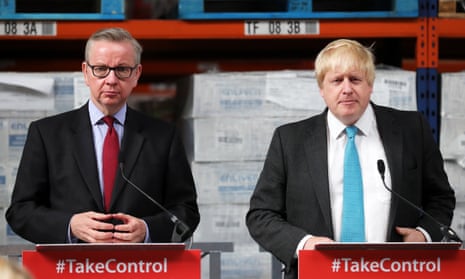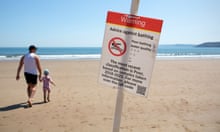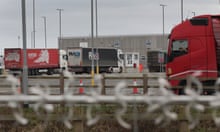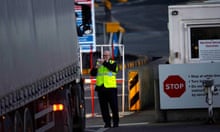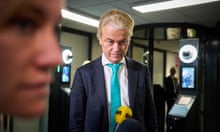Michael Gove has admitted “moral cowardice” during the Brexit campaign by not being upfront with David Cameron about his role in the leave campaign.
In an interview for the Political Currency podcast with George Osborne and Ed Balls, the levelling up secretary said he was initially reluctant to take a prominent role in the campaign, but had been persuaded to by the Vote Leave campaign coordinator, Dominic Cummings.
Osborne, the former chancellor who campaigned for Remain, said Gove had told Cameron in the Downing Street plan that he would not play a prominent role. He asked the minister: “Did you deceive David? […] He certainly felt betrayed.”
Gove said he did not think he had deceived Cameron but had ended up “going further” in the campaign, by taking part in TV shows and debates, than he had anticipated and he should have been “clearer earlier”.
“And I think that was an example of on the one hand, cowardice on my part, moral cowardice … on the other hand, a recognition that perhaps there’s this feeling in politics, perhaps something will turn up, perhaps this moment won’t come when we have to make that decision,” he said. “But I think David, entirely fairly, should have expected me to have been more upfront earlier.”
Gove said he went to bed early on the night of the referendum and learned of the outcome only the next morning after he was woken up by his wife.
Osborne said he had stayed up all night, describing the vote to leave the EU as the most traumatic day of his political life. After Cameron decided to resign, he returned to his flat in the Treasury.
“I didn’t wake anyone up, I just went and lay on the sofa wide awake,” he said. “And not only did I think, as I still do, this is a disaster for my country, I just knew it was an absolute disaster for my career, it was basically the end of my political career. It’s definitely, of my political career – of any part of my career – the most traumatic day of my life.”
Gove also told the podcast, which is running a mini-series about the referendum called The Brexit Plots, that he had decided to stand to become leader of the Conservatives, and prime minister, after losing confidence in Boris Johnson’s suitability for the role.
He said his doubts started after a barbecue at Johnson’s house in Oxfordshire on the Sunday after the referendum result, when he and his team were “relaxing in the sun” rather than preparing for the seismic consequences of leaving the EU.
“I wanted to believe, and did believe, that Boris had grown during the referendum campaign and was ready,” he said. “And then I lost confidence in the judgment that he had changed sufficiently and was sufficiently ready.
“And I thought, I can’t, in all honesty, recommend him, to the British people, and say, he’s now ready to be prime minister.”
